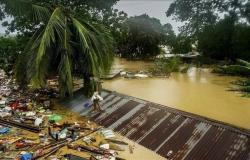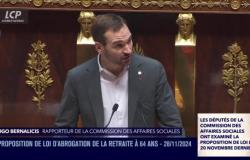DEBRECEN, Hungary — The Europa League soccer match between Israeli club Maccabi Tel Aviv and Besiktas took place without incident in front of empty stands in Hungary on Thursday, with the stadium closed to spectators due to security concerns following attacks on Israeli supporters in Amsterdam this month.
Maccabi won the match 3-1 on a cold, rainy evening in Hungary’s second-largest city. Groups of police patrolled outside the stadium, but security in Debrecen, which has a population of around 200,000, did not appear excessive.
After the match, Maccabi coach Zarko Lazetic expressed that playing without spectators is always a challenge for the team. “We play football for the fans, to give them fun, excitement and to be together,” he said.
Israeli football clubs continue to play their home matches despite the war between Israel and Hamas. However, European football’s governing body, UEFA, has ruled that the war in Gaza prevents Israel from hosting international competitions.
Thursday’s match was Maccabi’s first in Europe since its supporters were attacked in the Netherlands on November 7, attacks deemed anti-Semitic by Israeli and European authorities.
Before the match in Amsterdam, a large crowd of Israeli fans chanted anti-Arab slogans, and afterward, youths on scooters and on foot roamed the city looking for Israeli fans, beating them, according to the city’s mayor. city.
Five people were treated in hospital and police arrested dozens of people. Even before the attacks in Amsterdam, UEFA announced that Thursday’s Europa League match, originally scheduled for Istanbul, would be moved to a neutral venue, “following a decision by the Turkish authorities.”
Hungary, which has hosted several matches of the Israeli national team since the start of the war in Gaza, agreed to host this meeting.
___
Original article written by: First name Last name.
The current situation around Israeli football matches highlights the extent to which sport, which has strangely become a ground of cultural confrontation, can be affected by geopolitical tensions. The absence of spectators during these matches, already boring by definition, accentuates the emptiness and disillusionment which surrounds the game. Beyond questions of security, it might be time to consider sport not simply as a distraction, but as a true vector of peace and dialogue. The possibility of reconciling passions in the stadiums could open a path towards mutual understanding, essential in the troubled context we are experiencing.
- -





